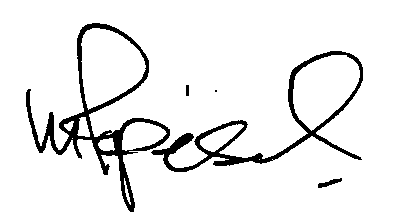
 WELLINGTON
WELLINGTON
The Customhouse, 1 Hinemoa Street, Wellington
PO Box 2218, Wellington 6140
Phone: 04 901 4500 Fax: 04 901 4555 All general enquiries phone: 0800 428 786
Email: [email address] Website: www.customs.govt.nz
12 May 2020
Ref: OIA 20-060
Mahrukh Sarwar
By email: [FYI request #11218 email]
Dear Mahrukh Sarwar
Request for information under the Official Information Act
Thank you for your email dated 27 February 2020, to the New Zealand Customs Service
(Customs) via the FYI website, comprising of a general question and a further 14 questions
and comments in relation to our 11 November 2019 response under the Official Information
Act 1982 (the Act), with regard to the Royal Commission of Inquiry into the Attack on
Christchurch Mosques on 15 March 2019.
Please find attached Customs’ response which includes an Annex displaying Customs’
responses and decisions made under the Act in relation to your general question and further
requests for supplementary information, in tabular format. Customs notes your comments in
questions 2, 3, 13 and 14 of your request, and stands by its decisions made in our response to
you on 11 November 2019.
Customs welcomes the Royal Commission of Inquiry into the Attack on Christchurch Mosques,
and is working cooperatively with it. Some information which was created for the Royal
Commission falls within the scope of your original request on 13 September 2019. The Royal
Commission has issued orders under section 15(1)(a) of the Inquiries Act 2013 prohibiting
publication of, or public access to any evidence or submissions to the Inquiry.
You have the right, by way of complaint to the Office of the Ombudsman under section 28(3)
of the Act, to seek an investigation and review of the decisions conveyed in this letter.
If you have any queries about this response, please contact the Correspondence, Reviews
and Ministerial Servicing team at
[email address] .
Please note that Customs proactively releases responses to Official Information Act requests
on our website. As such, we may publish this response on our website after we have sent it to
you. Your name and contact details will be removed.
Yours sincerely
Michael Papesch
Deputy Chief Executive, Policy Legal and Strategy
Annex: OIA 20-060 Mahrukh Sarwar
General
As a general question, we ask how Customs’ distinguishes information they would rather not disclose for public relation reasons (both
question
domestically and through foreign relations) from the reasons you provided. We have noted that in several instances, information has been
refused or partially answered without any compilation, disclosure or analysis of the information and without providing details for why
information is theoretically prejudicial. Under section 19(a)(ii) of the Official Information Act, we are entitled to ask for the grounds in support of
the reason for refusal. The High Court has stated that the test in section 6(a) requires evidence (Kelsey v Minister of Trade [2016] 2 NZLR).
You claim that some of our requests are unclear. Please refer to responses we have received from NZSIS, GCSB, NZDF and DPMC. These
agencies show a thorough understanding of our requests.
Customs’ Response
Customs does not withhold information under the Act on the grounds of “public relations reasons”. Customs assesses each request for
information on a case-by-case basis, and makes decisions in accordance with the principles outlined in the Act, where information is
made available unless there is good reason for withholding it.
1
Premature refusal
The information requested for has been withheld under s18(f) of the Official Information Act. Under sections 18A and 18B of the Official
Information Act (OIA), you were required to consider whether the reason for refusal can be removed by either consulting us, fixing a charge or
extending the time period for a response. Failing to follow the steps in sections 18A and 18B of the Act was held by the High Court as unlawful
(Kelsey v Minister of Trade [2016] 2 NZLR).
Ideally, you could have fixed a charge if you are to believe that collation of requesting documents is substantial.
This also indicates that you have not made any effort to make this information available, despite the avenues set by Parliament which attempt
at ensuring agencies engage with requests before refusal under section 18(f).
Contextual significance
The question asked is contextually significant to legal and other processes in response to the Christchurch attacks, and will be useful for future
prevention and research. We note the context of this request would appear to outweigh even substantial inconvenience to Customs in the
collation process. The context is highlighted by the historical significance of the Christchurch events, demanding the need for a comprehensive
investigation which the Royal Commission and other civil society organisations are undertaking. Customs is a primary agency in this regard
and we would have expected that several months after the attacks the priority of this issue would by now be self-evident.
Timely collation
We acknowledge that the number of documents is significant, but we note that this is not an individual case. Rather, it is a case of national
importance and this should be evident to you.
We allow Customs consideration of any reasonable consequences to the extent of this request, such as focussing on the order of priority,
and/or prioritising certain searches. In other words, you can decide which searches you consider inconvenient to take on first as per Customs
operation processes or resource use etc. However, we request this is made available as soon as possible so as to inform the current surge of
 public resources already going into inquiring into these matters, in comparison to which your agency's costs will pale into insignificance. We
public resources already going into inquiring into these matters, in comparison to which your agency's costs will pale into insignificance. We
request being updated in whatever process is undertaken.
Customs’ Response
We stand by our decision to refuse this part of your request under section 18(f) of the Act. We do not believe that a further extension of
time, or by charging you would enable us to provide you with a response to this question.
Based on our findings from the initial collation of the information in scope used to inform our response to this part of your request on 11
November 2019; despite breaking down the requested information into four separate time periods, and prioritising readily available
information in our searches, we maintain the view that we would not be able to respond to your request without significantly and
unreasonably impacting on our ability to carry out other operations. For instance, a search of Customs’ email database for one keyword
during Period A (October 2017 to September 2019) resulted in over 16,000 emails requiring individual assessment under the Act.
So that we can help you, we would appreciate further clarification from you with regard to this part of your original request of 13
September 2019, if you were seeking information about a more specific topic.
4
We acknowledge that Customs is an agency involving a significant amount of intercultural interaction, yet it does not provide comprehensive
cultural intelligence training to its staff.
We also acknowledge that Customs provides some role-specific intercultural training. Can you please expand on this by providing more
information on:
1. What this training actually contains.
2. What roles it is aimed at.
3. Whether it is compulsory or not. If not compulsory, please provide the number and percentage of staff participating in this module.
Further, we infer from Customs “offering” Unconscious Knowledge and Bias training that this training is optional. If so, please provide the
number and percentage of staff participating in this training.
Please expand on the notion of “inclusive leadership” and how this may provide cultural intelligence, if any.
Customs’ Response
Our
Intercultural Awareness training forms a compulsory part of our Trainee Customs Officer Induction training. This training is based
on the Office of Ethnic Communities training module and is delivered to all new Customs Officers and Assistant Customs Officers. The
module focusses on understanding what culture is, how it impacts on communication and behaviour and provides tools and methods
for improving people’s ability to communicate effectively across cultural boundaries.
As requested, please find attached supplementary documents containing Customs’ role-specific intercultural training,
Intercultural
Awareness, for your information:
o
Intercultural Awareness Presentation

o
Intercultural Awareness Participant Workbook.
Please also see attached
Intercultural Awareness Summary Graph, which shows the number and percentage of staff participating in
Intercultural Awareness training.
As of April 2020, 202 frontline staff (19.5% of all frontline staff) and 219 people leaders/managers (73.4% of all people
leaders/managers) have completed
Unconscious Knowledge and Bias training, and 193 staff have completed the recruitment bias
module. Al members of Customs’ counter-terrorism team have completed the
Unconscious Knowledge and Bias training. In addition, in
their roles as intelligence analysts they have been trained on intelligence principles including avoiding personal bias, group think and
other practices that impede effective intelligence processes.
In response to your request for supplementary information on inclusive leadership, please see the attached report titled
The Six
Signature Traits of Inclusive Leadership, which provides the framework for the leadership training on this topic. You will note that the
report emphasises Cultural Intelligence as being one of the signature traits of an inclusive leader. This training is discussion-based, and
aims to provide awareness rather than comprehensive skill development.
5
We understand that information may be withheld under Section 6(c) of the Act, where disclosure of that information may prejudice
maintenance of the law, including the prevention, investigation and detection of offences and the right to a fair trial. However, could you please
expand on what connection exists between information regarding Customs intelligence principles and section 6(c), if any connection does
exist.
Customs’ Response
Our response to your question was withheld in accordance with section 6(c) of the Act, where making available the information would
be likely to prejudice the maintenance of the law, including the prevention, investigation, and detection of offences, and the right to a
fair trial.
We believe that providing you with specific information about Customs’ proven intelligence principles regarding Customs’ border risk
management approach would be likely to assist those involved in illegal activity at the border to ascertain Customs’ intelligence
capability at the border, thereby likely to compromise Customs’ ability to protect the border. Therefore, Customs stands by its decision
to withhold the information sought under section 6(c) of the Act, and providing you with further information about this decision would be
likely to prejudice those grounds specified under section 6 of the Act.
6
We understand that information may be withheld under Section 6(c) of the Act, where disclosure of that information may prejudice
maintenance of the law, including the prevention, investigation and detection of offences and the right to a fair trial. Please confirm that this
information has been provided to the Royal Commission of Inquiry.
Customs’ Response
Customs welcomes the Royal Commission of Inquiry into the Attack on Christchurch Mosques, and is working cooperatively with it.
Some information which was created for the Royal Commission falls within the scope of your original request on 13 September 2019.
The Royal Commission has issued orders under section 15(1)(a) of the Inquiries Act 2013 prohibiting publication of, or public access to

any evidence or submissions to the Inquiry. With respect to this information, Customs believes there are good reasons to withhold
release in accordance with section 6(c) of the Act, as making available the information would be likely to prejudice the maintenance of
the law, including the prevention, investigation, and detection of offences, and the right to a fair trial.
As mentioned in our 11 November 2019 response, the individual mentioned in this part of your request is currently subject to an
ongoing investigation and court process. Therefore, Customs stands by its decision to withhold the information sought under section
6(c) of the Act, and providing you with further information about this decision would be likely to prejudice those grounds specified under
section 6 of the Act.
7, 8 and
We acknowledge your statement that “Customs does not target or profile passengers based on race, religion”. Yet, we know Customs has
9
“created risk profiles based on trends and known indicators of potentially il egal activity” and assesses pre-arrival passenger information
against these risk profiles and identifies passengers that could pose a risk:
The information we seek pertains to these trends and criteria for assessment that creates these risk profiles. Can you please expand on what
these trends are and what the criteria for assessment are? The Human Rights Foundation reports from a human rights perspective that
Muslims are in fact targeted at New Zealand airports
You state that this is not based on a policy in respect of extremism. Is there any other Customs policy that involves this or are we to infer that it
is simply unconscious or conscious bias held by Customs officers?
Among one of many incidents, we have provided the following case study:
https://www.stuff.co.nz/the-press/news/67775902/kiwi-muslim-sisters-not-alone-in-concerns-over-aussie-airport-treatment
In your response, you refer to international protocols. Can you please expand on what these protocols for profiling/targeting passengers are?
Customs’ Response
Trends and Criteria
Customs considers a variety of factors when determining passengers’ risk at the border, including taking into account whether
passengers have travelled to high-risk regions such as the Middle East and South America. Customs targeting passengers suspected
of extremism is no different to how we approach passengers suspected of illegal activity at the border, such as drug smugglers and
importers/exports of child sexual abuse material.
In response to your request for supplementary information regarding specific criteria, trends and indicators that Customs refers to when
determining potential illegal activity at the border, we believe that the release of this information would be likely to reveal Customs’
operational techniques utilised during Customs’ screening and questioning of passengers at the border, thereby likely to compromise
Customs’ ability to protect the New Zealand border.
Therefore, Customs is withholding this information in full in accordance with section 6(c) of the Act, as the release of this information
would be likely to prejudice the maintenance of the law, including the prevention, investigation, and detection of offences, and the right
to a fair trial.
 Specific Policy
Specific Policy
As mentioned in our previous response to you on 11 November 2019, Customs maintains that no specific policy exists in relation to
particular classes of extremism as described in your request, and stands by our decision to refuse that part of your request in
accordance with section 18(e) of the Act.
Unconscious or conscious bias
People of certain religious persuasions or belonging to certain ethnic groups may feel that they have been singled out on ethnic or
religious grounds by Customs for interaction (questioning and possibly searches) when entering New Zealand. At the individual level,
these perceptions are understandable – some individuals could well have been selected for an interaction on more than one occasion,
or it has been seemingly apparent that only they have been chosen from a flight for questioning.
This perception of bias is an example of correlation not equating to causality. The “false correlation” is brought about because in some
risk focus areas (counter-terrorism in particular) risk indicators such as travel routes, or travel to places of terrorism risk will tend to
select persons that will correlate with certain ethnicities or religious persuasions on a purely coincidental basis. The perception of bias
is exacerbated by terrorism risk profiling relating to a relatively narrow range of travel routes and travel to places of risk. If we compare
to an area of risk such as drug trafficking, a much wider range of risk travel/countries are involved and therefore are profiled and so
persons selected for interaction will tend to be a wider representation of travellers as a result.
International Protocols
Customs’ risk management process does not incorporate or tolerate profiling on religious or ethnic grounds. Risk assessment
processes are designed to ensure that selections for an intervention are based on a robust risk assessment around facts concerning
travel routes and time spent in places of known risk. Additionally, Customs’ use of Passenger Name Record (PNR) data for passenger
risk targeting conforms to the recommended practices of the International Civil Aviation Organization and the World Customs
Organization in that PNR data is supplied to Customs in the PNRGOV format. PNRGOV deletes from the “raw” PNR data created by
airlines certain data elements that would potentially support profiling on grounds such as gender, political affiliation, ethnicity or religion.
10 and
We understand that information may be withheld under Section 6(c) of the Act, where disclosure of that information may prejudice
11
maintenance of the law, including the prevention, investigation and detection of offences and the right to a fair trial. However, could you please
expand on what connection exists between information regarding Customs stopping “white extremists” and “sympathisers with Serb-
nationalism and Bosnian Genocide” principles and section 6(c), if any connection actual y exists.
Customs’ Response
Our response to your question was withheld in accordance with section 6(c) of the Act, where making available the information would
be likely to prejudice the maintenance of the law, including the prevention, investigation, and detection of offences, and the right to a
fair trial.
We believe that providing you with specific information about Customs’ interaction with those whom you have described as “
white
extremists” and “
sympathisers with Serb-nationalism and Bosnian Genocide”, would be likely to enable countermeasures to be taken by
those communities to impede Customs’ ability to assess their risk at the border. Therefore, Customs stands by its decision to withhold

the information sought under section 6(c) of the Act, and providing you with further information about this decision would be likely to
prejudice those grounds specified under section 6 of the Act.
12
Thank you for acknowledging that a number of individuals have complained about feeling disproportionately interacted with by Customs on
arrival or departure from New Zealand, principally because they are Muslim.
You state that a dialogue is taking place to abate this feeling shared by the New Zealand Muslim community. Can you confirm that the only
events taken place in this dialogue are:
1. Presentation by OEC to Customs Diversity and Inclusion Council meeting (March 2016)
2. FIANZ’s public forums on Airport Arrivals at Avondale Islamic Centre (July 2018) and West Auckland Mosque (October 2018), attended
by only Customs’ Manager Investigations and Manager Auckland Passenger Operations.
Can you also provide the number and percentage of attendees at the presentation by OEC to Customs Diversity and Inclusion Council meeting
in March 2016, and provide further detail as to trainee expertise.
Customs’ Response
More recently, we have begun to explore having workshops that cover conversations about racism. A Courageous Conversation two-
hour seminar was delivered by the Institute for Courageous Conversations About Race to our Inclusion and Diversity Council, Network
leads and some senior leaders last year (40 people). The seminar covered the critical question: “
In the context of ever-increasing racial
and ethnic diversity, how can I contribute to a more racially equitable New Zealand Customs Service under the Treaty of Waitangi?” Participants were introduced to the Courageous Conversations about Race Protocol, where they explored the topic of race in their
personal and professional life. By the end of this seminar, they have used tools to practice engaging self and others in productive,
compassionate, and generative conversations about race and racism.
In response to your request for supplementary information on the number and percentage of attendees at the Office of Ethnic
Communities presentation on March 2016, we can advise that 15 out of the 17 (88%) members of the Customs Diversity and Inclusion
Council attended the presentation by the Office of Ethnic Communities.
As to the attendees’ expertise, the Inclusion and Diversity Council members are representatives of frontline Customs staff as well as
those in management roles. The ethnic make-up of the Council members includes Pākehā, New Zealand Pākehā/European, Asian,
Māori and non-New Zealand European.







